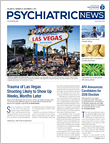It was at a medical library in a state psychiatric hospital in rural Virginia that I found my first Irvin Yalom book. A common assignment for house staff on the state hospital rotation was learning to run the various groups that were designed for patients on the unit. Dr. Yalom’s book, Inpatient Group Psychotherapy, was a kind of basic primer on organizing and leading various types of group therapy. Since that time, many years ago, I believe I have read most of Dr. Yalom’s books including several fictional accountings of therapy in Lying on the Couch and, most recently, Staring at the Sun. It is this book that I have been thinking quite a bit about recently.
Dr. Yalom observes that looking directly into the sun can be uncomfortable and even painful, but despite those feelings, we are often tempted to do so. He suggests that we need to do the same when it comes to confronting our mortality—despite the uncomfortable feelings that may arise, accepting the inevitability of one’s death is a freeing experience that allows individuals to take positive, reaffirming steps to mitigate their discomfort and arrive at some measure of peace.
This book has been on my mind recently because my mother is not well. She is going to be 91 on her next birthday and has had a series of falls that most recently included a subdural hematoma that was surgically evacuated. Her post-op course has been up and down—two steps forward, one step back. She and our entire family are staring at the sun. She has been well most of her life, has not had any chronic health issues, and is very articulate with good executive functioning and only very slight word-finding problems. As a family, we have not experienced many deaths of relatives with chronic medical problems, so we are forging unfamiliar ground.
Having to face a parent’s mortality, and in turn thinking about one’s own mortality, is sobering. Although I try to help my family understand the ways, rules, and culture of our medical world, sometimes it is a challenge. We Americans tend to think that we should do all we can to ensure that our loved one lives as long as possible, and we ascribe doctors with almost magical healing powers to make that happen. Making a “DNR” decision is not only wrenching for most patients and their families, but guilt often results when we contemplate doing so—our loved one may feel that he or she is letting the family down or abandoning a spouse who may also be infirm, and we may feel that we are not going the extra mile to “prove” our love.
For physicians, dealing with death is another facet of our profession that can add to our feelings of distress or burnout. Many of us have been called in to consult with families that refused to face the inevitability of a loved one’s death and insisted that extreme measures be taken that are medically indefensible. Getting family members to the point of acceptance and a clear conscience can be overwhelming. Sometimes doing the right thing means we must involve the hospital’s ethics committee, which adds additional stress. On the flip side, we have also dealt with families who seemed too eager to let their loved one go, or perhaps they were no longer even in the picture. And underneath it all, while we wish we had those magical healing powers, we know that we, too, are mortal with mortal limitations.
As I contemplate these issues, I know there are no easy answers, but Dr. Yalom’s wisdom reminds me that one of the ways to handle our distress and anxiety is to face these challenges square in the face and deal proactively with them. We do not need to turn away from the sun—we just need to remember to put our sunglasses on first. ■

